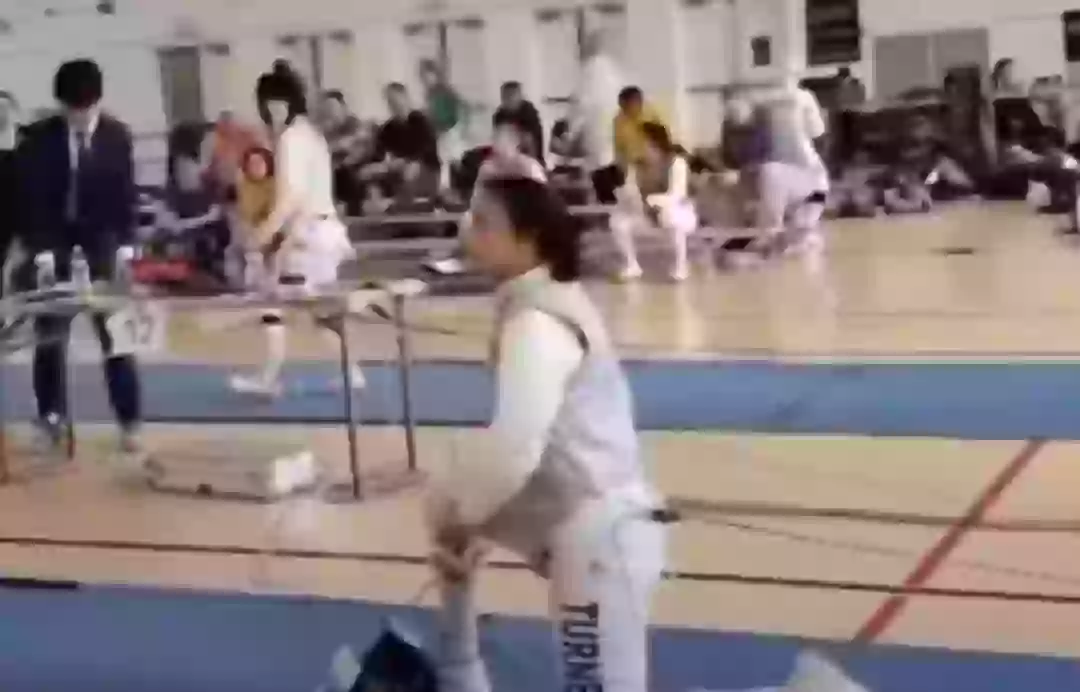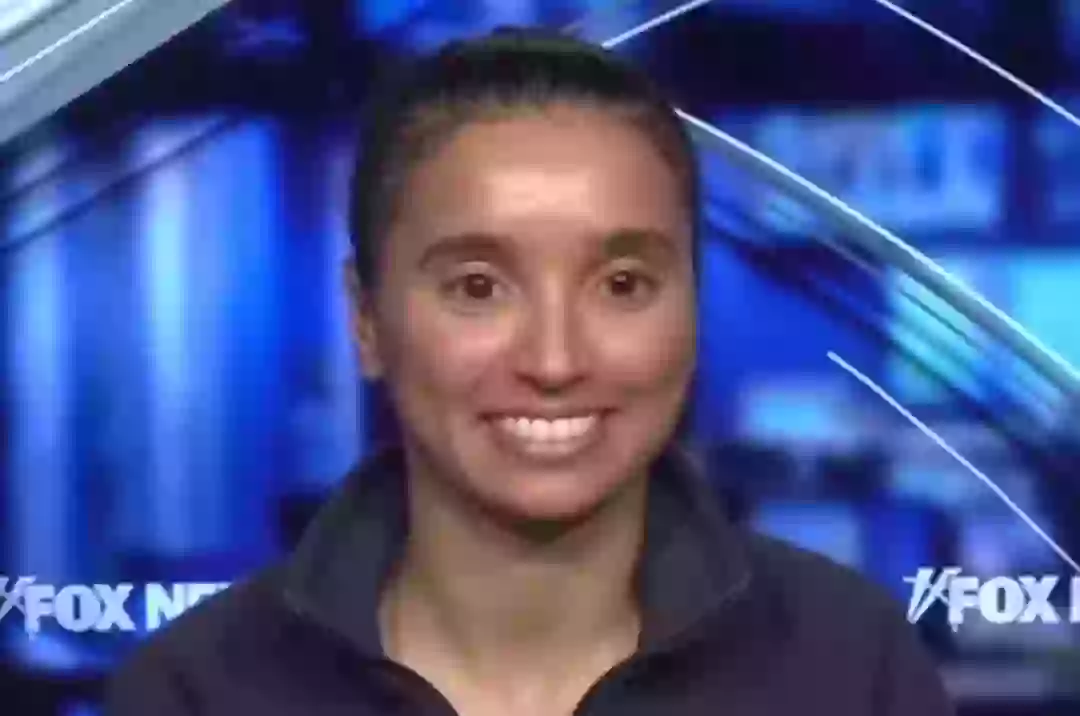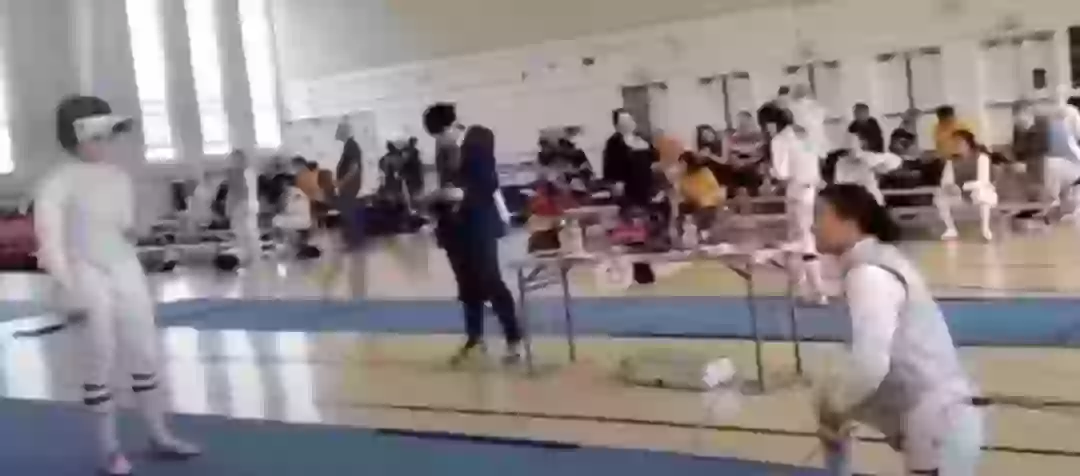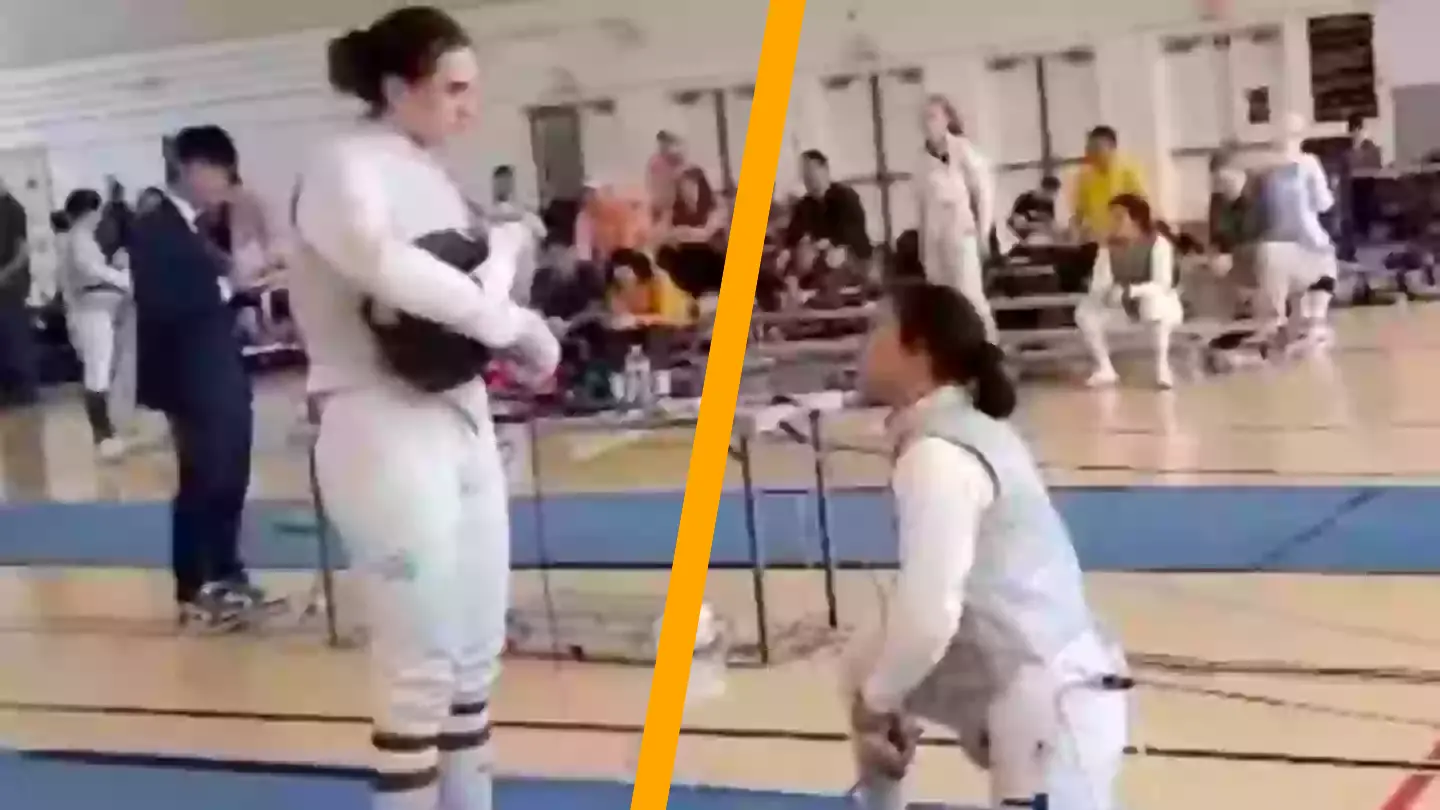Warning: This article contains discussion of discrimination against the trans community which some readers may find distressing.
A competitive fencer who declined to participate in a match against a transgender opponent at a Maryland event has shared her perspective.
During the weekend of March 29, athletes Stephanie Turner and Redmond Sullivan were scheduled to compete in a regional tournament as part of the Cherry Blossom Open organized by the UFSA at the University of Maryland.

However, Turner refused to face Sullivan – a transgender athlete – dropping to one knee in protest, which resulted in her dismissal from the competition.
Turner has subsequently explained her decision and the events leading up to it, revealing that she had reviewed the online registration before the competition to check who would be participating and confirm her check-in times.
Upon seeing Sullivan’s name on the list and recognizing her from an article, Turner told FOX News she “became very disappointed” and “felt disheartened.”
Turner then knelt down and was approached by an official who asked if she was declining to fence.
“Initially, I told them that I was refusing to fence because this person is a man and I am a woman and this is a woman’s tournament and I refuse to fence on principle,” she stated.

She recounted that Sullivan appeared “confused,” thinking Turner had been “injured,” and approached her asking if she was alright, to which Turner responded: “I’m sorry. I have much love and respect for you, but I will not fence you.”
Sullivan attempted to explain that a board member present supported her participation and referenced a policy permitting her to compete, warning Turner she would receive a “black card” penalty.
Nevertheless, Turner maintained her stance and was subsequently eliminated from the tournament.
Turner explained: “I have no choice as a woman – as a female – in where I compete. I am a woman and I have an athletic disadvantage to men so I compete in the woman’s division.”

Turner contended that Sullivan could participate in either division or at “mixed events in local tournaments” and she wouldn’t have registered had she known transgender fencers would be present, suggesting Sullivan “must have signed up after” her.
She further commented: “I was like, ‘You know what, I’m just going to give it to God. If this person shows up to my event and is on my script, then I would take a knee, and that would be God’s will’.”
Turner expressed that it was “very difficult” for her to make the decision to refuse competition and it will “probably, at least for a moment, destroy [her] life.”
What has Sullivan’s team said? Sullivan’s team has also addressed the tournament, asserting that she has “followed every rule and guideline set forth by the FIE (the international fencing governing organisation) and USA Fencing (the national organisation).”
Sullivan’s team, Iconic Fencing Club, stated to the Daily Express US that she has “every right to compete in the events that she qualifies for, and has long since met the criteria to do so.”
The statement continued: “Fencing is rooted in a deep tradition of honour, sportsmanship, inclusion, and respect, and in a sport that prides itself on these values, the type of behaviour expressed by Red’s opponent has no place.
“Iconic Fencing Club supports Red in her fencing journey and will continue to do so in the future.”
What has USA Fencing said? A spokesperson for USA Fencing clarified that Turner was penalized simply for refusing to fence an “eligible opponent.”
“According to the FIE (International Fencing Federation) Technical Rules, specifically Article t.113, a fencer is not permitted to refuse to fence another properly entered fencer for any reason,” the spokesperson explained.
“Under these rules, such a refusal results in disqualification and the corresponding sanctions. This policy exists to maintain fair competition standards and preserve the sport’s integrity.”
USA Fencing provided a statement to Fox News Digital referencing its current transgender and non-binary athlete policy established in 2023 “designed to expand access to the sport of fencing and create inclusive, safe space.”
The organization concluded: “The policy is based on the principle that everyone should have the ability to participate in sports and was based upon the research available of the day.
“We respect the viewpoints on all sides and encourage our members to continue sharing them with us as the matter evolves. It’s important for the fencing community to engage in this dialogue, but we expect this conversation to be conducted respectfully, whether at our tournaments or in online spaces. The way to progress is by respectful discussion based in evidence.”

